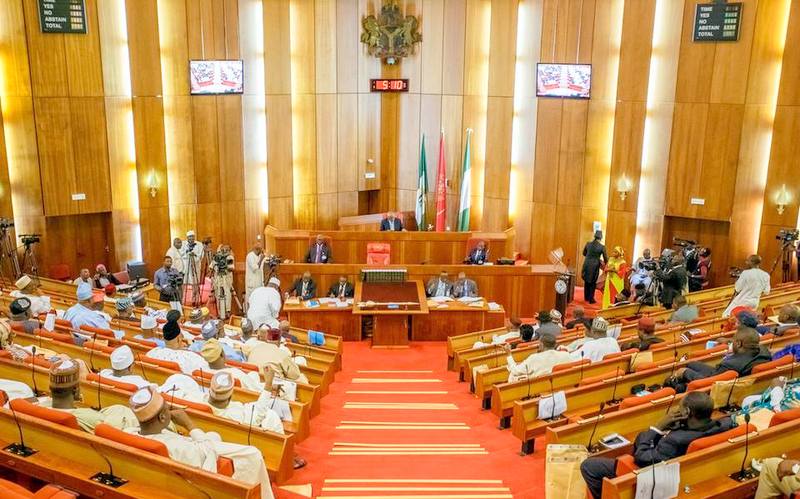Some Nigerians have lauded recent call by the Senate for the Presidency to present the 2014 National Conference report to it for consideration.
They told the News Agency of Nigeria (NAN) in separate interviews in Abuja on Monday, that consideration of the report would help to tackle problems currently confronting the nation.
Prof. Sam Egwu from Kogi said that the call was a positive development in view of the content of the report.
Egwu said that the document was a robust one because it was put together by representatives of the people.
“Many Nigerians have been calling for implementation of that report.
“This is because a lot went into it, not only in terms of what Nigeria spent but the depth of consultations and inclusiveness of the composition of the National Conference.
“If you recall, people came from labour, the academia, civil society and from the mainstream political class and there were also diaspora elements involved.
“So, if you are talking about the diversity of that presentation, you are likely going to accord the conference report some element of legitimacy.
“It is more important now that the country is experiencing a lot of contestations from different ethnic groups and identities, all of them drawing attention to the importance of restructuring.
“It includes the importance of reforming the federal system, the importance of fighting corruption and the importance of governance.
“I think we need to go back to some of the recommendations of that conference because in my opinion, some of them provide answers to some of the challenges that we have,’’ he said.
Egwu said that though it made sense to call for the implementation of the conference report, there was a need to also tackle the problem of poverty that was affecting many Nigerians.
“It is not the level of restructuring but good governance. We must use the resources of this country to deal with challenges of malnutrition, hunger and other issues.
“This is because at the end of the day, it is deepening poverty that is actually throwing up these challenges and people are increasingly falling back on their ethnic religious and ethnic identities,’’ he said.
On why it took the National Assembly so long to request for the report, he said that it was the reality of the country that led to the senate calling for the report.
Egwu pointed out that though the National Assembly kept mute for a long time on the issue, it had realized that Nigeria was at a critical point that it ought to return to the report.
He,however, said the call by the upper legislative chamber was commendable and should be given a push.
On his part, President of the Nigerian Institute of Public Relations (NIPR), Mr Rotimi Oladele, said that the call was long expected, given the fact that implementing the report would help in solving some of the national problems.
“We were expecting this. We lobbied for it. We begged for it.
“It is nice that the Senate is calling for the report,’’ Oladele said.
He said that if the presidency refused to release the report, the senate should not hesitate to request for it directly from those who led the conference.
According to him, since the structure of the confab is still alive, they can request for the report directly if the Presidency does not want to give it to them.
“The document belongs to Nigerians; it belongs to the whole nation and nobody can bury it,’’ he said.
Oladele called for patience from the citizenry to enable the senate to do a thorough job on the conference report.
Mr Olasupo Shasore, former Attorney-General and Commissioner for Justice, Lagos State, also lauded the development.
Shasore, who led the Lagos State delegation to the conference in 2014, described the senate’s call for the conference report as a `welcome development’, saying there were many laudable recommendations in the report.
“Some of the recommendations include the devolution of powers from the central government to the states.
“ This is the kind of restructuring that will create wealth across Nigeria. It is an encouraging development for the legislature to call for the report,’’ he said.
The former commissioner said that the timing for the call of the report three years after was not late, adding that it was a living document that could be implemented by any government. (NAN)

